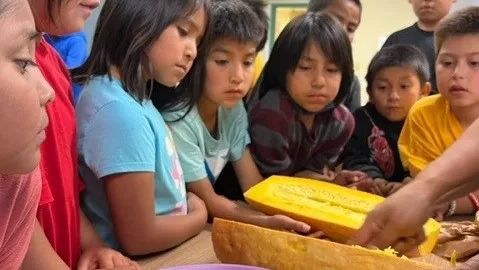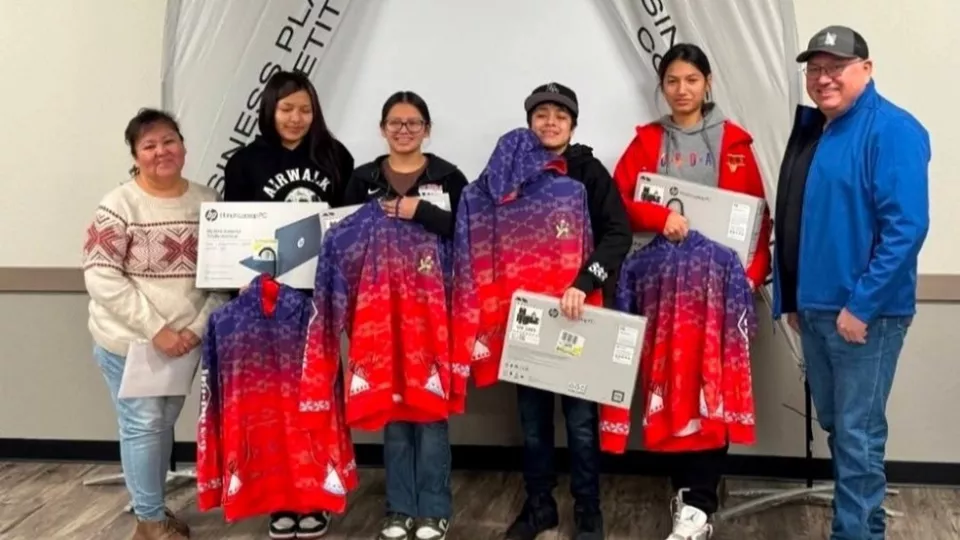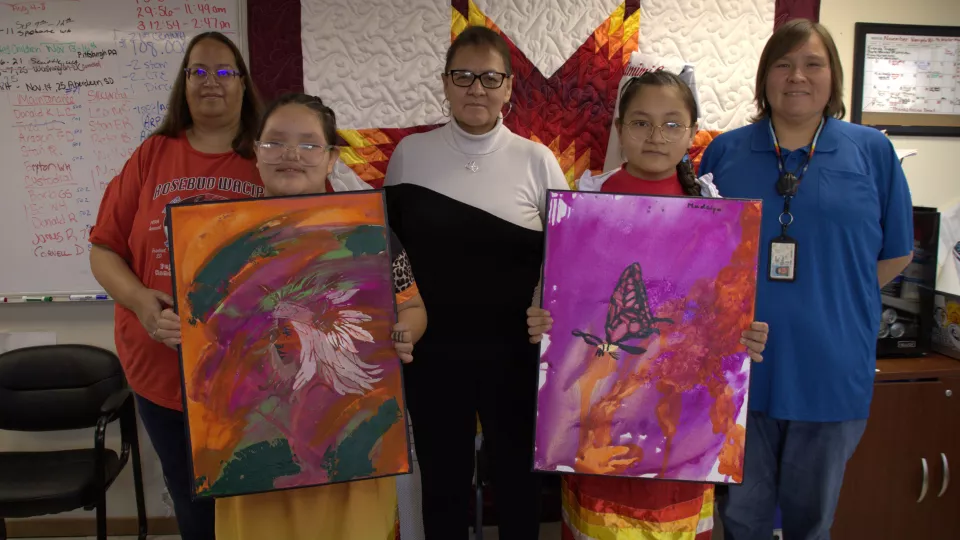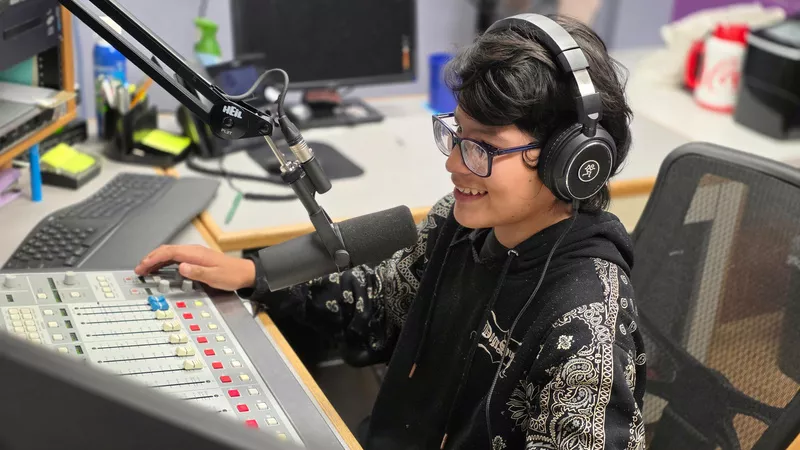
In 2022, the Bureau of Indian Affairs and Bureau of Indian Education partnered with the U.S. Department of Agriculture to create Indigenous Food Hubs. Four schools funded by the BIE were chosen as pilot sites, and the work beginning at the schools and in the communities is starting to make an impact.
The BIE hired its first national nutrition consultant to serve as a point of contact for schools, help build nutrition programs, and improve school meals for healthy, well-balanced, culturally relevant offerings.
U.S. Public Health Service Commissioned Corps Lt. Cmdr. Casey Cavanaugh began as the BIE’s national nutrition consultant in September 2023 to support developing and implementing culturally appropriate nutrition and training standards. Those standards draw from Indigenous knowledge, including how to build and run community-based agriculture and health systems, and are strengthened through connections with Native food vendors and producers.
A member of the Shoshone-Paiute Tribes of the Duck Valley Indian Reservation in Owyhee, Nevada, Lt. Cmdr. Cavanaugh has a long career in healthcare serving Indian Country.
“I came from more of a clinical role,” Cavanaugh said. “I was an Indian Health Service dietitian for 14 years. I also served as a patient advocate. So, this role is new to me, and I am really enjoying the work that I’m doing.”
Her expansive experience in nutrition includes being the director of an urban Native Health Women, Infants and Children’s program in Arizona, as a public health nutritionist to several Tribes in Arizona, and certifications as a diabetes care and education specialist and lactation educator. Cavanaugh obtained her master’s in clinical dietetics from The Ohio State University.
She also supports Public Health Service missions during national emergencies.
Indigenous Food Hubs at BIE operated schools were created to provide a community space for helping source Indigenous foods, encouraging culturally based nutrition education and training cook staff in food preparation.
The four pilot sites are Sherman Indian High School in Riverside, California; San Felipe Pueblo Elementary School in San Felipe Pueblo, New Mexico; Wingate High School in Gallup, New Mexico; and Nenahnezad Community School in Fruitland, New Mexico.
Cavanaugh works with their staff to create nutritious menus, using Indigenous ingredients such as sunflower butter and modifying recipes like sweet potato pancakes for breakfast.
Students also work on their cultural cooking skills, using them for ceremony and to become more independent.
At Wingate High School, students learned how to make corn-based Navajo cake together, part of a ceremony celebrating womanhood. They also learned how to butcher a sheep, which was served for lunch as part of a mutton stew with side salad, melon and a biscuit.
Students at Sherman Indian High School learned how to make blue corn maple cinnamon tamales in a virtual class with an Indigenous chef. They also participated in California State University San Marcos’ Indian Day events, making horchata and blueberry chia seed puddings for attendees.
Chefs from bureau-operated schools participate in what Cavanaugh calls the Cooks Council. The weekly virtual meeting allows BIE school cooks nationwide to gather and talk about menus, successes in their kitchens, and how to offer delicious meals with local, Indigenous ingredients that meet nutritional guidelines.
“I feel like with these Cooks Council meetings and extra support, the cooks feel like they can make these decisions that better serve their communities,” Cavanaugh said.
The food hub sites offer monthly Indigenous meals, such as lamb sliders, bison chili and Navajo ice cream.
“(The cooks) have the knowledge, but now they feel like they can put it on the plate,” Cavanaugh said. “They’re institutionalizing these recipes in a way because now it’s been brought into the school where it’s always been at home.”
The BIE also offers several new virtual nutritional services, including virtual appointments with its nutritionist and presentations to students on nutrition.
For more information, contact Lt. Cmdr. Casey Cavanaugh at casey.cavanaugh@bie.edu.
Contact
Office of Communications
Bureau of Indian Education Central Office
U.S. Department of the Interior
1849 C Street NW, MIB-3610
Washington, DC 20240
Telephone: 202-941-0789
Email: biecommunications@bie.edu





